You might have heard the name Gihren’s Greed from one of my earlier “Only in Japan” pieces on the Gundam franchise. Chances are, if you’re a long-time Gundam fan, it’s come up more than a few times in online discussions, and even imageboard threads. What makes it all the more surprising is how, despite having several titles made over the years, not one has ever made it across the Pacific.
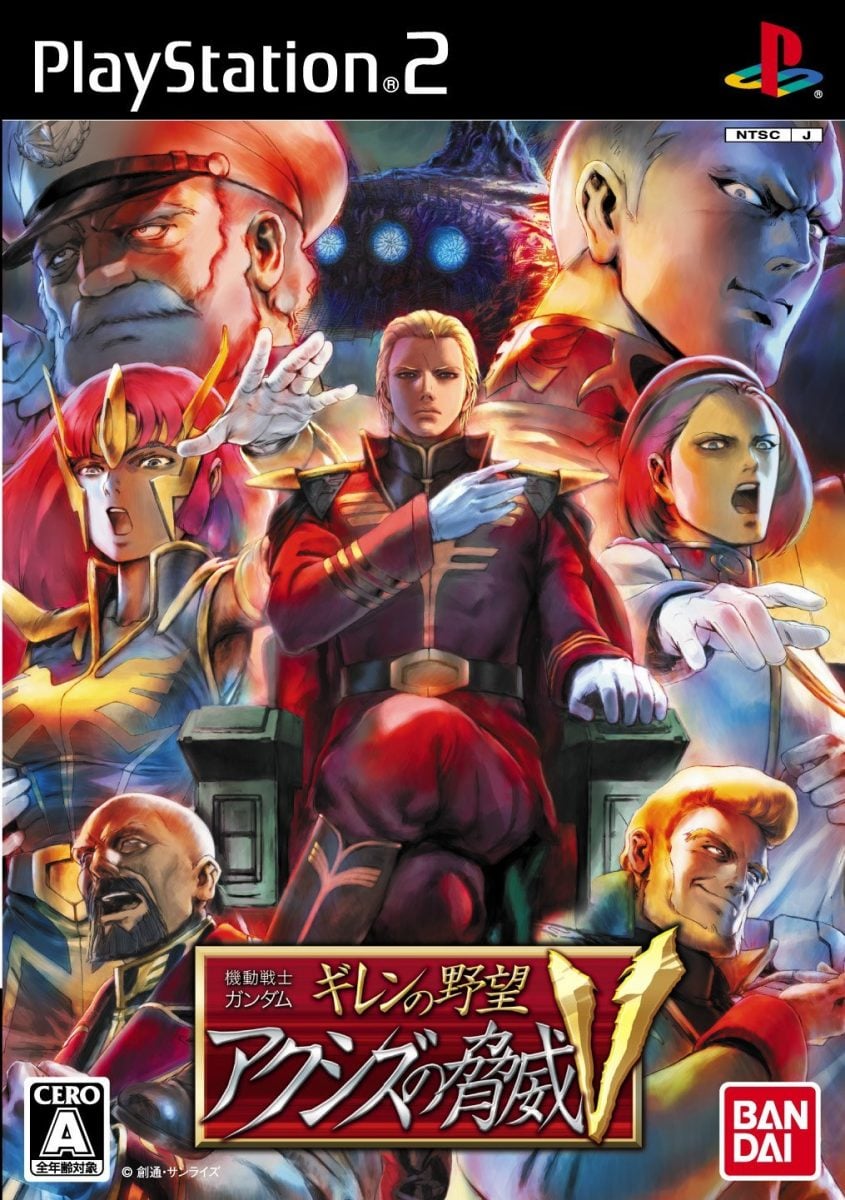
Though not as action-packed or popular as other video games made with the license, this series is notable for being the only one to put you in the commander’s seat during the Universal Century, in a way not unlike Western grand strategy games like Paradox Interactive’s Hearts of Iron franchise. Still, is this worth importing, or just a mild curiosity?
The animated OP to Shin Gihren no Yabou, the latest in the series, gives a taste of the alternate timeline possibilities and fanservice within. Circa 2011. (Source: YouTube)
War From the Top
Inspired by Koei’s Nobunaga’s Ambition, and also known as Gihren no Yabou in Japanese, Gihren’s Greed is a series of turn-based titles that first emerged in 1998 on the Sega Saturn. Its most recent entry popped up on the PSP in 2011. Superficially, it takes the gameplay style of the SD Gundam G Generation series, with upgradable stats for units and pilots, as well as action phases and character dynamics. However, unlike those games or Zeonic Front — both of which focus on separate battles and at best, a small brigade’s worth of units — these titles add political, diplomatic, and military management into the mix. Later entries would add refinements, 3D animations, and new features (such as a morality meter and espionage mechanics), but the core elements remain the same: you’re not just in charge of a single squad, but of an entire faction in the UC Gundam timeline, beginning around the One Year War. What happens next, is entirely up to you.
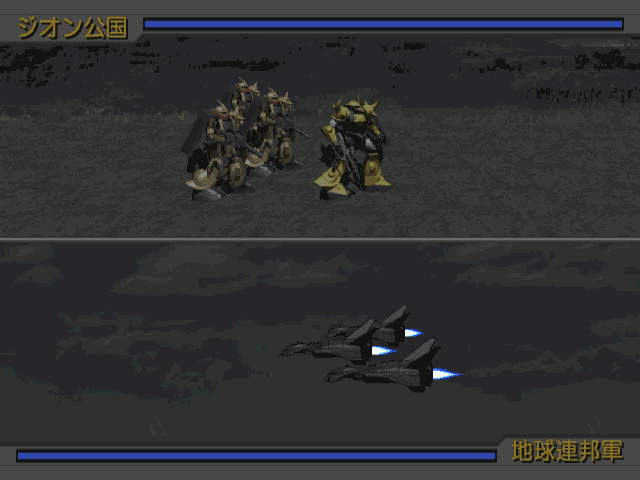
While you’ve seen how simultaneously thrilling and harrowing conflict can be in the Universal Century, this series shows this from the perspective of those leading men into victory (or death). Whether in the shoes of Gen. Johann Revil of the Earth Federation Forces, or stoking the flames as Gihren Zabi himself, you’ll find yourself overseeing captured territories, negotiating with neutral colonies, and responding to various seemingly random events. As boring and complicated as that sounds, it doesn’t take long before the gameplay becomes engrossing. As the Feddies, you have to buy as much time as possible to finish “Operation V” even as the Spacenoids overwhelm your outdated tanks. Meanwhile, if Garma somehow manages to survive his canon death but Zeon goes too war-hungry, then there’s a chance he and a sizable chunk of that side will form their own faction, sparking a civil war.
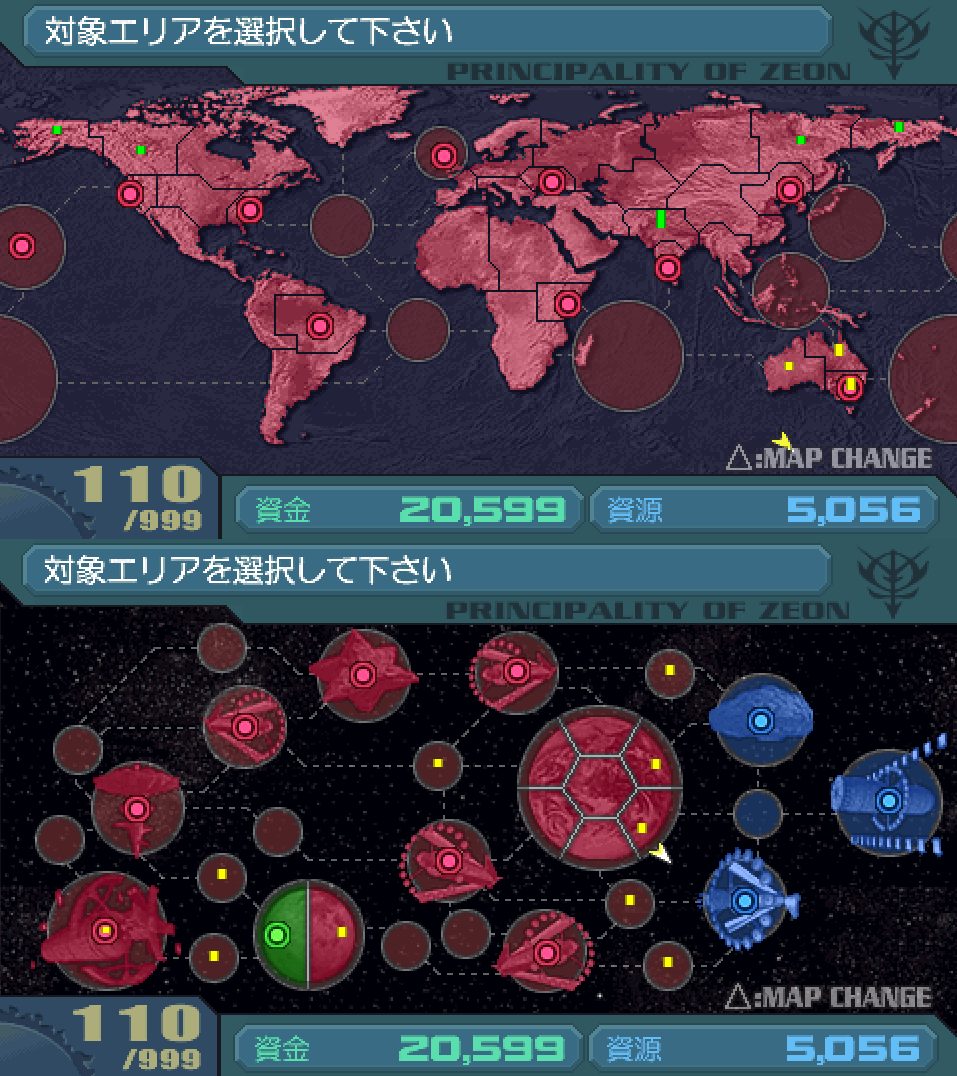
That, coincidentally, is what also makes Gihren’s Greed stand out: you’re not confined to following canon, and the games know it. Instead, the games allow for various alternate timelines and scenarios to play out, depending on which decisions are made, or simply for appointing certain people. If you win the One Year War as Zeon, for example, but fail to properly maintain order, a different version of Mobile Suit Zeta Gundam can ensue with the Titans emerging from radicalized Earthnoid rebels. Meanwhile, if you play as the AEUG and avoid penalty-inducing actions, then Quattro/Char won’t turn evil, preventing the events of Char’s Counterattack from happening.
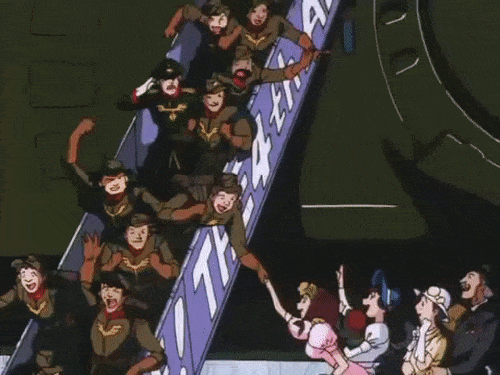
Granted, some of this can only be appreciated by Gundam fans or grand strategy aficionados. Those unaware of Mobile Suit Gundam ZZ (1986-87) may be left clueless as to why listening to Glemy Toto on which pilots and officers to promote in an Axis/Neo Zeon playthrough is a bad idea. Not to mention, managing logistics and which Mobile Suit variant to mass-produce don’t make for riveting spectacle. Nonetheless, it’s not often that you get to see what goes on behind the scenes of the UC continuity, and what can motive both the best and worst in humanity.
Soldiers of Sorrow
One other thing that’s consistent throughout all the iterations of Gihren’s Greed is the fanservice on display. Developed in-house by Bandai, the series makes use of the license well beyond just including pilots and MS seen only in side-material or merchandise. You can, for instance, assign the Unicorn Gundam to Amuro Ray in a late-game scenario, and he’d have unique reactions and stats to match. Meanwhile, the involvement of Sunrise, the studio directly in charge of the franchise, means that there’s no lack of cutscenes and animated sequences that are specially made for the games. These go far in giving the impression that you’re in the thick of UC history in the making.
Certain alternate events, such as a second Operation British, even have unique cutscenes made, with the original voice actors to boot. (Source: YouTube)
This also extends to the audio. Combining snippets from the existing soundtracks with more atmospheric orchestral pieces (later entries featuring more unique themes for each faction), as well as the carnage-laden SFX lifted straight out of the anime, the games convey both the grand strategy scope of each campaign and the grim seriousness of the setting. That the titles both have the original seiyuu reprising their roles, and include voicework for fan favorites like Johnny Ridden, is a nice bonus that brings it all together.
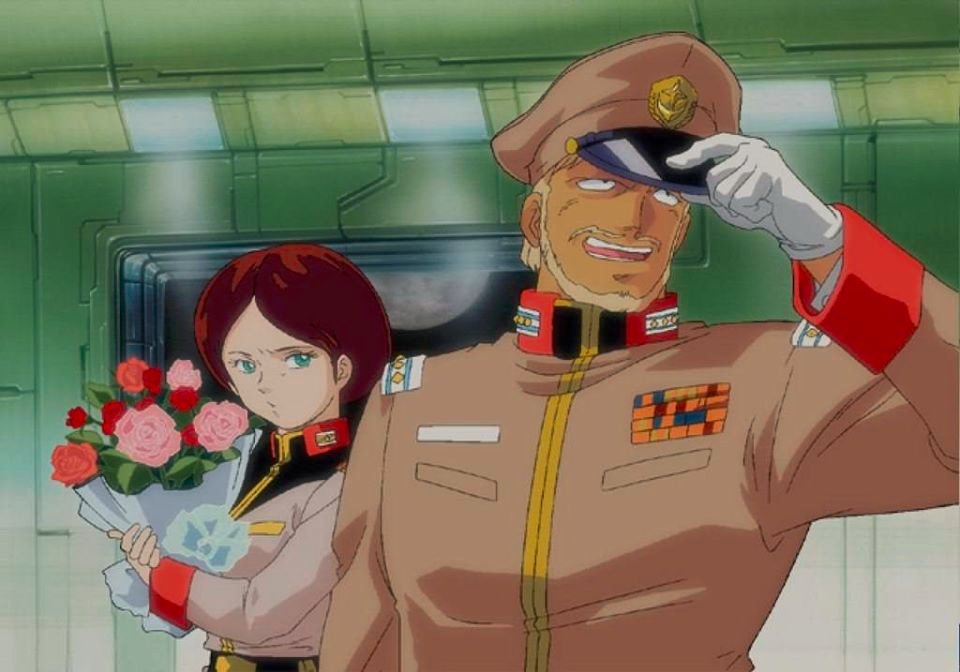
Though it’s been years since the last entry in the series, it’s consistently garnered high rankings from Famitsu and gained a following in Japan. Alas, these weren’t enough to give Gihren’s Greed the kind of fame enjoyed by other games made for the storied saga, thanks to its niche nature. It’s also been said that the costs of localizing those titles would probably be prohibitive, owing to Gundam being less popular in the West. Moreover, the popularity of established turn-based and grand strategy franchises in the West, such as Sid Meier’s Civilization and Total War, would inevitably lead to unfair comparisons which would have doomed the series to obscurity.
Yet in spite of its shortcomings, perceived or otherwise, these games are still worth pursuing. With their focus on the inner workings of UC Gundam, grand scope, and general fanservice, there’s something for fans of both the anime and strategy gaming to enjoy. If you can somehow find it.














